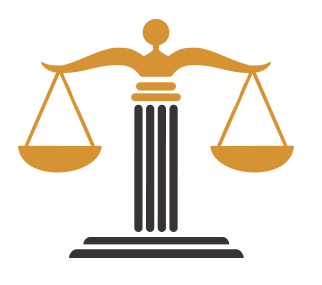St. Louis
Bankruptcy
Attorney
When you are struggling with debt, the things that provide you with stability – your house, your job, your family – can seem all too fragile. But debt doesn’t have to tear your life apart. You have options. I can help you understand them.
My name is L. Barry Gubin. With over 28 years of experience as a bankruptcy attorney, I am here to guide you through your debt relief options. I assist people throughout the St. Louis, Missouri area filing for Chapter 7 or Chapter 13 bankruptcy.
To sit down with an experienced bankruptcy lawyer to discuss your debt relief options, contact me at 314.432.7400. I offer a free initial meeting at my St. Louis office.
Discover Your Debt Relief Options
Before you file for bankruptcy, it is important to know exactly what you can accomplish.
Filing for bankruptcy can:
- Stop wage garnishment.
- Stop collection actions, including harassing phone calls from creditors or lawsuits attempting to collect a debt.
- Stop foreclosure.
- Discharge unsecured debt.
- Give you time to catch up on past due mortgage payments.

Helping You
What does this all mean?
Bankruptcy can be a confusing area of the law for many people. When we meet, I will explain the process and answer all of your questions. I will make sure that you are not “lost in the process” and that you understand how, together we will work your case through the bankruptcy system.
To get you started, I’m providing some basic information about bankruptcy:
- Only an attorney can give you legal advice as to the best approach to resolving your financial issues as well as represent you at the meeting of creditors or any court appearances. A bankruptcy attorney or a document prepared can work through the paperwork with you, but only an attorney can answer your questions along the way.
- I represent debtors. “Debtors” are people who owe money to someone. The person to whom money is owed is called a “creditor.”
- Bankruptcy allows you to discharge some or all of your debts. “Unsecured debts” are amounts you owe that are not tied to property, like credit cards. “Secured debts” are amounts that you owe that are tied to property, like a mortgage or car loan.
- “Exemptions” allow to keep certain amounts of specific types of property; you may not have to lose your home, your car, your family heirlooms or other property. The amount of the exemption depends on the type of property.
No two bankruptcies are exactly alike. With my years of experience in this area of the law, I will be able to tell you what a bankruptcy would look like based on your own financial situation.
We are a debt relief agency. We help people file for bankruptcy relief under the Bankruptcy Code.
How to Choose the Appropriate Chapter?
When you come to my office for your free initial consultation, we will discuss the type of bankruptcy that would best suit your financial situation – a filing under Chapter 7 or under Chapter 13 of the bankruptcy code.
Chapter 7
A Chapter 7 bankruptcy is often referred to as a fresh start bankruptcy. Some or all of your assets may be sold to pay off your creditors. Any left over unsecured debt is then discharged. I can help you determine if you qualify.
Chapter 13
A Chapter 13 bankruptcy is sometimes called a wage-earner's bankruptcy and is for those who make too much money to qualify for a chapter 7 or have assets that they want to keep. A repayment plan is created, restructuring your debt and creating a plan that will last for 3-5 years. Once complete, any remaining unsecured debt is discharged.
